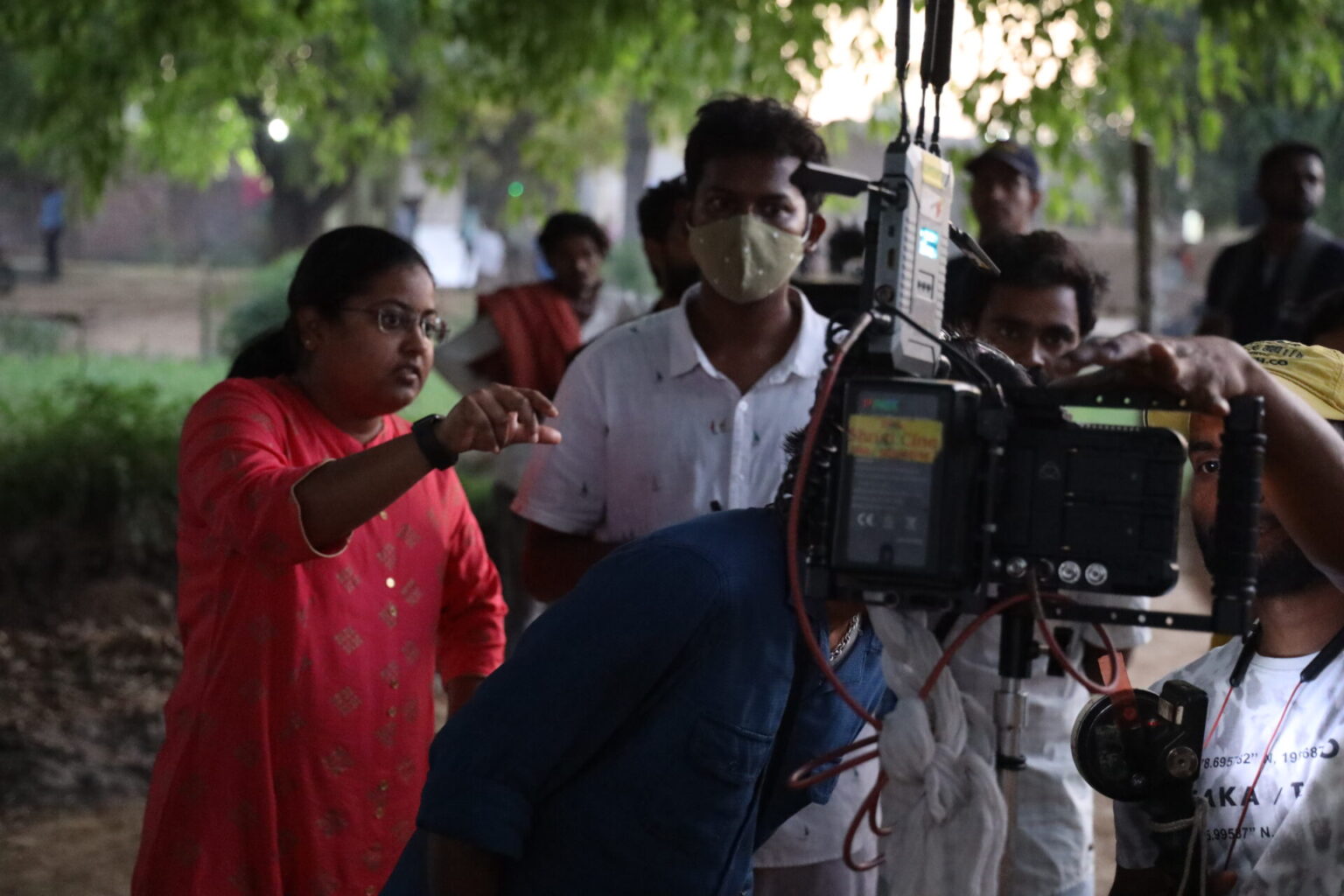Bhavana Goparaju didn’t always know she wanted to be a filmmaker. But after a chance encounter where someone asked her to write a story after reading her poems, she realized filmmaking’s power to tell stories. Now, an accomplished producer, Bhavana has made multiple films that have debuted in such prestigious film festivals as Berlinale and Busan International Film Festival. Now, she’s ready to share those stories.
In our exclusive interview, Bhavana discusses growing up in India and how she got her start in filmmaking, as well as the humanist stories she’s drawn to telling while continuing to spotlight third-world people and stories.
Cinemacy: It’s my pleasure to meet you, Bhavana! Where were you born, where did you grow up, and where do you reside?
Bhavana: Likewise! I was born and brought up in the city of Warangal, Telangana, in India. I currently currently live in Minneapolis, Minnesota.
Cinemacy: Did you always want to make movies when you grew up? When did you know you wanted to be a filmmaker?
Bhavana: Actually, no. I never thought I would be a filmmaker. I wanted to capture and tell stories, and learn and explore life in general (that of different strata of people). But I never thought I would be a filmmaker until someone in the industry read my poetry and short stories on social media and suggested I write a story for them.
The whole process of learning to write a story, logline, and script was so mesmerizing. Since that experience and after thinking deeply about how filmmaking is a powerful tool to tell stories, I decided to pursue life as a filmmaker.
Cinemacy: What was the first film project you worked on?
Bhavana: I worked as a lyricist first in a Telugu film. Then I worked as part of a writing team in a Hindi movie while trying to write lyrics in between. Then, after some struggles getting to write the kinds of stories I wanted to make, I moved into producing. I observed the power that producers had in controlling which movies could be made. According to my scenario and skillset, I strongly felt that producing was the way to go.
Cinemacy: What have you found are the most important qualities to have as a producer?
Bhavana: Finding solutions no matter what, being committed to the film’s vision, and having a combination of creative spirit and strategic soul.

Cinemacy: You’ve made an impressive amount of movies to date, having produced films that have played globally. What have been the most challenging moments you’ve had to overcome in your career? What have been your proudest?
Bhavana: I feel like the challenges increase with every next movie I make, which I also feel is a sign of progress. Every film I make is one step further either in the budget, the vision, the team, etc. The most challenging so far was making In the Belly of a Tiger. Investors backed out during COVID-19. And even after figuring that out, because we shot in a village in the northern part of India which our crew weren’t familiar with, a lot of line production fell out of place.
Also, because of the budget constraints in independent cinema, every day was a problem-solving day. I had sleepless nights figuring out how every day would go as planned and making sure not to distract the director and let the final output go as planned, which was very different from other projects. The series of events that happened in this film made it feel more challenging.
My proudest moments are of course going to Berlinale, and Maadathy’s North American screenings. Maadathy premiered at Busan Film Festival in October of 2019 and went on to have a Latin American premiere at Cartagena, but COVID-19 happened.
It was a huge setback for an independent film that was doing so well getting right into COVID-19. That also got us thinking about what to do from there, to which we thought of independent individual screenings, which became like a tour. Watching people watch the film, hearing what they had to say, and the audience coming to talk about unseeable caste when it became a conversation initiator on caste-based atrocities in India felt good.
Cinemacy: In the Belly of a Tiger World premiered at Berlinale this year–congratulations! What was the reception like for the film, and where can audiences see it?
Bhavana: Thank you! It was great. We had sold out shows in Berlin. Audiences and Critics who saw the film had all great things to say. So, it’s good! Now, we are focusing on premiering in other premiere film festivals in North America and Asia. After that, we want to go to the public releasing in theaters/OTT streaming.
Cinemacy: Can you tell us more about the production company you founded, Jeevi Films? What is the company’s mission, and what are some of your fondest memories and proudest moments?
Bhavana: Jeevi means “living being” (“human being” in my mother tongue, Telugu). The mission of Jeevi Films is to tell humanistic stories, especially those of third-world cinema, and bring them to the world, find audiences, and create spaces for such stories for the sake of the world itself. The first production from Jeevi Films is In the Belly of a Tiger. Every moment making this film and since Jeevi Films was established is a revelation and a learning experience for me. Working with as passionate a team as one can be one can be will always come first in the list of fondest moments.
My proudest moment is that the first production of Jeevi Films premiered at Berlinale 2024. I am also personally proud of the Jeevi Script Fund, which will be unveiled to the world soon.

Cinemacy: What have you learned about working in indie filmmaking that more aspiring filmmakers would benefit from knowing?
Bhavana: Make sure you can narrate the story behind the story of your film. Only boundaries or limitations are what we create in ourselves. If you think we need this person for our film or a certain thing for our film, go make it happen. Don’t hesitate to approach anyone. Only crazy people can do and be magical.
Cinemacy: Who are your filmmaking heroes and dream collaborators? Do you have any next projects that you’re excited about?
Bhavana: I would say Charlie Chaplin, Ava Du Vernay now. I wish Charlie Chaplin was alive now, but want to work with Ava and Anurag Kashyap. I had an actor Irrfan Khan who I wanted to work with but (he passed). I also really wanted to work with The Daniels of Everything Everywhere All At Once. I want to pick their brain on the screenplay and visual miracle that they created on the screen through their film.
Yes, I have a project which is in the later stages of development that I am excited about.
Cinemacy: What messages and themes are important to you that you wish to explore in your future work?
Bhavana: I am also exploring the social care systems in the USA and homelessness which got to me since I have been in the USA. Also the contradictions, and complexions of the third world in the first world.
Also, as a nature lover, I have been exploring to experiment on over layering of scientific biological systems on the social systems we built. But I am assuming it might take more time than I am anticipating right now.
Cinemacy: What do you hope audiences take away after seeing your films?
Bhavana: There is life that can be unknown and new to us, but there is life, love, fight, and hope in every form. All we need to do is look at it and learn from an empathetic perspective. And, if all life seems hopeless around us, we need to be that hope.
You can follow Bhavana Goparaju on her Instagram, Jeevi Films Instagram, Facebook, Linktree, and Jeevi Fillms website.

